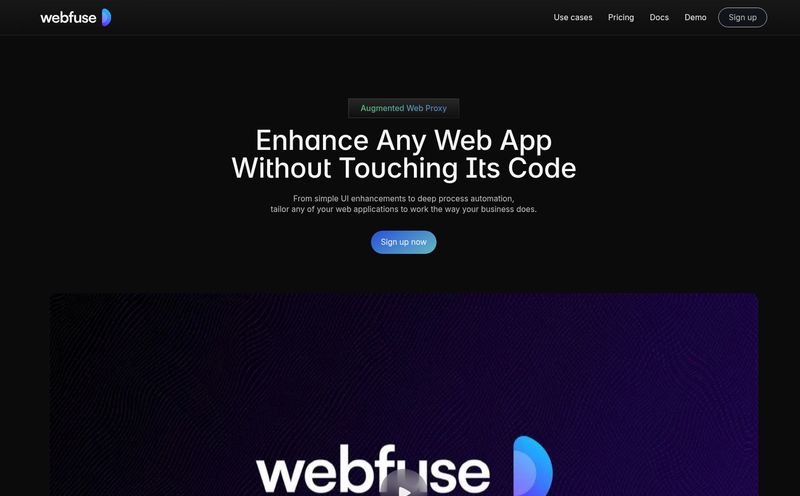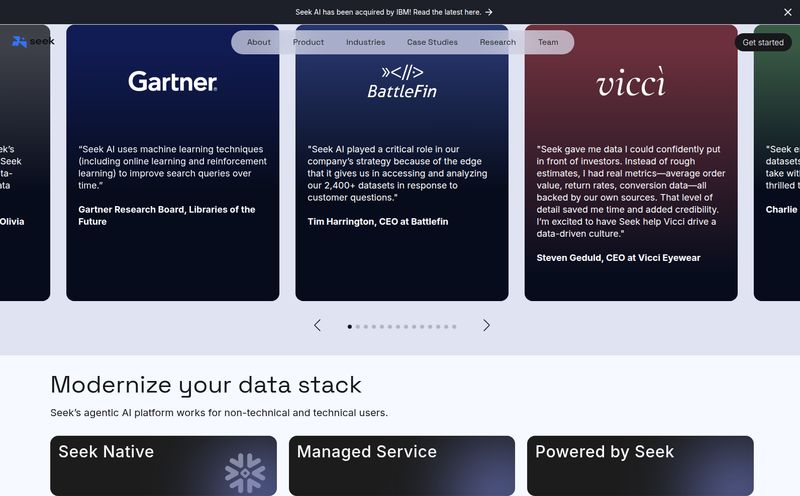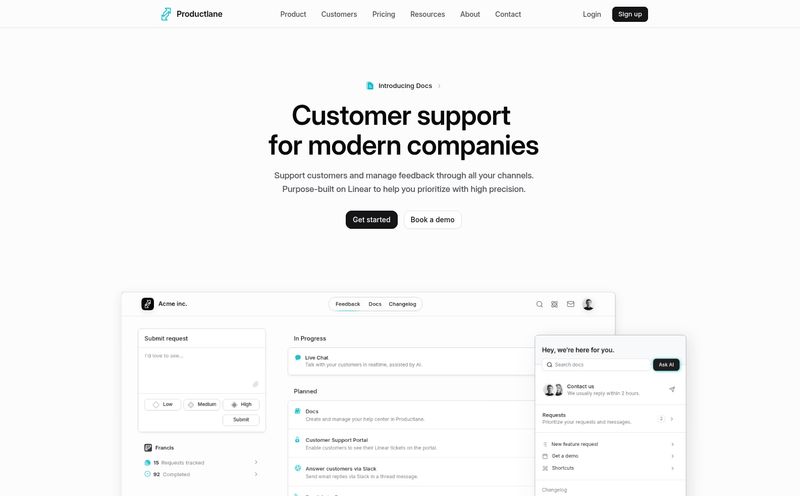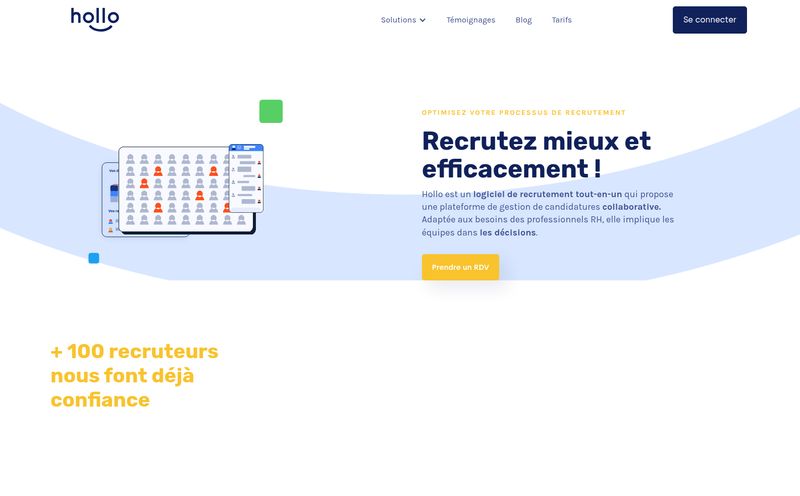We're all neck-deep in the AI revolution, and it's been a wild ride. We've got AI that can write poetry, paint masterpieces, and even debug our code (thank goodness). But there's always been this nagging feeling in the back of my mind, a little voice that whispers,
Who really owns this stuff?
When you use most AI tools, you're just renting. You're playing in someone else's sandbox, by their rules. Your data, your interactions, your 'creations'—they're all feeding a massive, centralized machine that you have zero control over. For years, I've been writing about traffic generation and digital trends, and this pattern is as old as the internet itself: platforms promise empowerment but deliver a gilded cage.
But what if you could actually own your AI? Not rent it. Not borrow it. But own it, like you own an NFT or a domain name. That's the giant, audacious promise of a project I've been tracking: THINK Protocol.
So, What on Earth is THINK Protocol?
If you’ve been hanging around the more interesting corners of Web3, you might have heard of Altered State Machine (ASM). They were the pioneers of what they called 'Non-Fungible Intelligence'—basically, the idea of giving your NFTs a 'brain' so they could learn and evolve. THINK Protocol is the next evolution of that mind-bending concept.
The tagline says it all: "AI YOU OWN."
THINK is an open protocol designed to create AI agents that you, the user, can own, personalize, and take with you across the digital universe. Their own 404 page puts it beautifully, calling it a "signal from the future." They're not talking about simple chatbots or glorified virtual assistants. They’re talking about creating what they call Souls—intelligent, evolving, on-chain agents that are composable and interoperable. They're yours. As they say, "Not rented. Not harvested. Not extracted." That line alone gives me goosebumps.
The Benefits of an Agentic Web
Okay, owning your AI sounds cool, but what does it actually mean for you and me? This isn't just a philosophical debate; it has some seriously practical benefits that get me excited as a tech and SEO pro.
Finally, True Digital Sovereignty
This is the big one. Imagine an AI agent that learns your preferences, your style, your strategies in a game, or your trading patterns in DeFi. Now, imagine that intelligence isn't stored on Google's or OpenAI's servers. It belongs to you, tokenized as your property. This agent works for you, and only you. It’s a fundamental shift in power from massive corporations back to the individual. It's the difference between being the product and being the owner.
An AI Sidekick That Actually Follows You
One of the biggest promises of the metaverse has been interoperability, but honestly, it’s mostly been a buzzword. THINK aims to make it a reality. Because your AI agent is a distinct entity you own, it can travel with you. Think of it like a digital companion. It could help you negotiate a deal in a finance app, then jump into a video game and act as your smart NPC sidekick, carrying all its memories and learnings with it. The agent's personality and data remain consistent across different platforms. This seamlessness is something we've been dreaming of for ages.
A Clever Shield Against Patent Trolls
Here’s a detail that really shows they’re thinking like builders. THINK provides a "patent umbrella" for those who innovate on their platform. In the cutthroat world of tech, getting sued by a patent troll (a company that holds patents just to sue others) is a real and constant fear for startups and developers. By creating a protected space, THINK is encouraging permissionless innovation. It's a small detail, but it speaks volumes about their commitment to building an open, collaborative ecosystem.
How Does It All Work Under the Hood?
Without getting too lost in the weeds, THINK acts as a decentralized layer that connects different parts of the AI puzzle. It brings together open-source agents, specialized tools, complex AI models, and what they call Memory Content Protocols (MCPs) into a single, composable framework. It's like a set of universal adapters and a central nervous system for your personal AI.
This framework allows developers to build applications where the intelligence is separate from the application itself. A game developer can build a fantastic world, and you can bring your own intelligent agent into it. The developer doesn't have to create a million smart NPCs; they just have to create a world that can interact with the agents people bring.
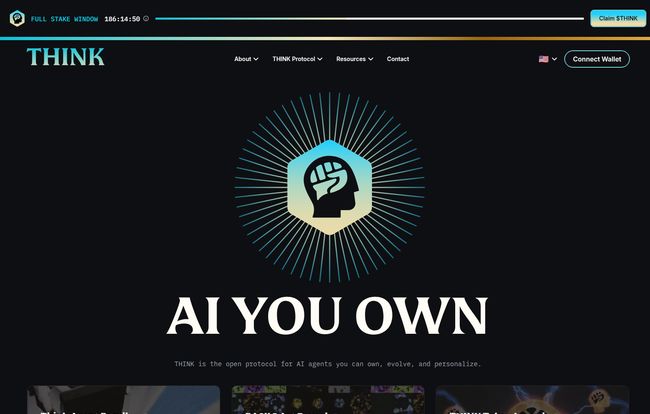
Visit Altered State Machine
It’s a modular, decentralized approach that stands in stark contrast to the monolithic, walled-garden AI we see today. It’s less about one company building a god-like AI and more about a global community building and owning a whole universe of specialized, interoperable intelligences.
The Good, The Bumps, and The Road Ahead
I wouldn't be doing my job if I didn't give you the full picture. The vision is incredible, truly. The idea of a decentralized, agent-centric web where users have genuine ownership is the kind of future I want to live in. The community-driven approach and the focus on interoperability are massive pluses. However, we have to be realistic. This is cutting-edge stuff, and that comes with challenges.
For one, it requires a mental shift. You need to grasp the basics of NFTs and AI concepts to really get it. There will inevitably be a learning curve, especially when it comes to training your AI agents to be truly useful. And, like any protocol, its success is completely dependent on adoption. Game developers, metaverse platforms, and DeFi builders need to see the value and integrate THINK into their projects. It's a classic chicken-and-egg situation.
Also, if you're wondering about the cost, there's no clear pricing information available right now. This is common for projects at this stage, which are more focused on building the core tech and community than on monetization. It's something to keep an eye on as the protocol matures.
So, Who Is This For?
Is THINK Protocol going to replace your Google Assistant tomorrow? Probably not. Right now, this is for the pioneers. It's for developers tired of building on shifting corporate sands. It’s for NFT collectors who want to do more with their assets than just display them. It's for anyone who believes in a more equitable and user-owned internet. It's for the people who get a thrill from the phrase their website uses:
You're not lost. You're early.
If that resonates with you, then I'd say THINK Protocol is absolutely worth your time and attention. It’s one of the most interesting plays in the entire Web3 space, and I'll be watching it very, very closely.
Frequently Asked Questions
- 1. What is THINK Protocol in simple terms?
- THINK Protocol is a system that lets you own a unique AI 'agent' as a digital asset, similar to an NFT. This AI can learn, evolve, and follow you across different apps, games, and metaverses.
- 2. Is THINK Protocol the same as Altered State Machine (ASM)?
- THINK is the next evolution of the concepts pioneered by Altered State Machine. It's built by the same visionaries and expands on the original idea of 'Non-Fungible Intelligence'. Think of it as ASM 2.0.
- 3. Do I need to be a programmer to use this?
- Initially, the primary users will likely be developers and technically-inclined enthusiasts. However, the goal is to create a user-friendly ecosystem where anyone can own and interact with their AI agents through various applications without needing to code.
- 4. What's the main difference between a THINK agent and a regular chatbot?
- A chatbot is typically a tool owned by a website or company. A THINK agent is an asset owned by you. It has a persistent memory, can operate across many different platforms, and its intelligence is yours to shape and control.
- 5. How much does THINK Protocol cost?
- As of now, there is no specific pricing information available. The project is in a developmental stage, focusing on protocol growth and adoption rather than a defined pricing structure.
- 6. Where can I find out more?
- The best place to start is their official website, where you can find their whitepaper, documentation for builders, and links to their community channels like Discord.
A Final Thought
For years, we've been cogs in a machine, generating data that makes other people rich. Projects like THINK Protocol represent a different path. It's a more complex, messier, and uncertain path, for sure. But it's one that leads to a place where we have a real stake in the digital worlds we inhabit. It's a shift from an internet of pages to an internet of agents. And that, my friends, is a future worth building.
Reference and Sources
- THINK Protocol Official Website: https://thinkprotocol.ai/
- Altered State Machine (for historical context): https://www.alteredstatemachine.xyz/
